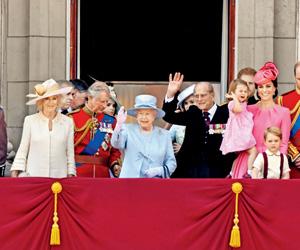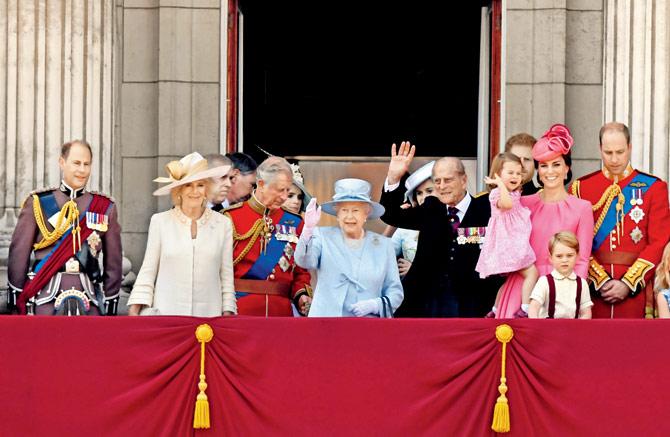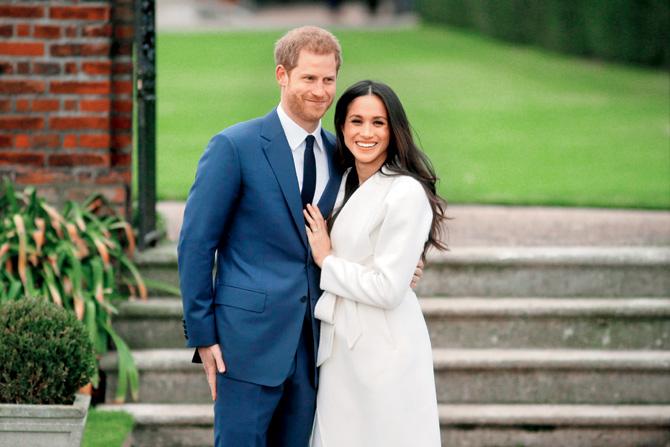American. Mixed race actor. Divorcee. As doubts are cast over Meghan Markle's fitting into the British royal family, experts navigate similar scenarios in relationships and at work

Sometime in 2016, Prince Harry of the British royal family fell in love with American actor Meghan Markle. They dated, closely guarding their privacy until they were sure about where they were headed. But once the news of their relationship went public, the verdict was out, too. Several UK tabloids put the spotlight on Markle's past, and published articles that suggested that the mixed-race, once-divorced actor may be a misfit in the royal family. Reports suggest that in her soon-to-release tell-all, Markle's half-sister Samantha Grant throws up dirt against Markle, with claims that she will never be fully accepted into the royal family because of certain traits like being pushy.

Pic/AFP
The recent announcement of their engagement has been welcomed with much cheer — including Grant's U-turn of sorts, where she now claims she is incredibly happy for the couple. However, in November last year, the judgmental media reports urged Prince Harry to issue a statement expressing his disappointment over the "wave of abuse and harassment" Markle had been subjected to.
Issues of fitting in, concocted or otherwise, are not difficult to come by in everyday life. Cross-cultural marriage in India is often looked at with as much, if not more scepticism. Being new to a workplace isn't easy either, with fresh ideas battling for acceptance over tried-and-tested methods. How do you navigate the tricky terrain of what may seem like a square-peg-in-a-round-hole scenario when it doesn't have to be? "When it comes to ostracising, I don't think any one of us belongs exclusively to either one club: who is an outsider and who, an insider depends on the context," explains counsellor and arts-based therapist Dr Nivedita Chalill. "Most of us play a role in it and one of the biggest problems is we think it is somebody else doing it," she adds, highlighting how rampant ostracism is.

Prince Harry with Meghan Markle
Fitting into relationships
Among families, where the compatibility of a relationship is under question, Dr Chalill recommends going to the source of the thought and using self-reflection to those harbouring it. "We need to recognise moments where we think in terms of 'us' and 'them'. Thinking about what makes us draw the line may give an answer to what is happening in the UK," she says, adding, "New ways are often unfamiliar. There is a feeling that they may not work because 'our' methods seem more tried and tested. That unwillingness to try something new comes from a space of fear and insecurity."
For those under the microscope, clinical psychologist Dr Amrita Joshi, whose area of work includes counselling couples and families, says, "Communication is key. It's important to talk openly about differences that are going to play out in everyday life, before marriage. Gender roles vary from culture to culture, so what is expected of each other should be ironed out before hand, especially distribution of household chores, co-parenting issues, and even changing surnames," she suggests. What if the scrutiny continues after marriage? "It's crucial to be able to go back to your partner and have a conversation, which won't be easy because it is feedback on their side of the family," says Dr Joshi, recommending having a support system that goes beyond the partner — someone within the family, or couples going through something similar.
Dr Chalill highlights the final outcome of being more accepting. "The strength of cross-cultural marriages lies in the diversity. When we get exposed to a new culture, we can tap into what is best in it. Ultimately, it can lead to a richer way of being."
Fitting in at the workplace
The office is a different ball game because concerns overfitting in are usually not rooted in personal equations. For those in their first week or month at the workplace, Dr Chalill recommends giving some time to understand and adapt to existing ways of the workplace. "Being asked to change your methods may have to do with the company's vision, than your ability or competence. The tried-and-tested method in place is often because the company is run for a particular reason — betterment of society, profit, efficiency, etc."
In any space where there are differences, avoiding an ego tussle and genuinely understanding the intentions of the person at the other end of the table, she says, goes a long way. "New employees may make you question the old way of doing things, which may seem threatening; but it may bring in a new perspective, which is eventually beneficial," she says. To ensure that work doesn't get hampered, Dr Joshi suggests making allies at work to bring things up with them to decide the best course of action. "You also need to have avenues to de-stress yourself when you reach home. This would also help you return to work refreshed," she says. Dr Chalill adds that it is unrealistic to expect all proposed changes to happen overnight and also that it can be overwhelming for the larger group. "You need to be patient and recognise that trust can also be earned by being around for some time."
 Subscribe today by clicking the link and stay updated with the latest news!" Click here!
Subscribe today by clicking the link and stay updated with the latest news!" Click here!







